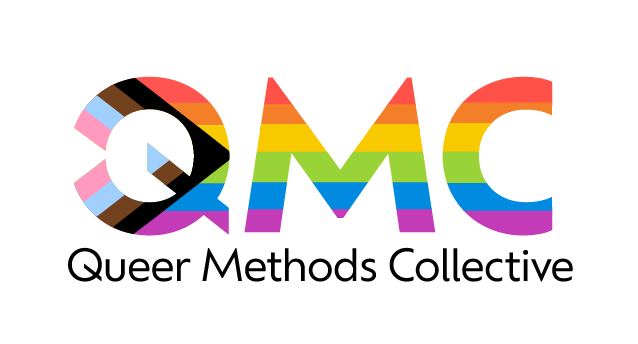Spotlight on Ki Askarpour, MS: Decolonizing Queer Iranian Mental Health Care
At Queer Methods, we highlight the incredible work of researchers committed to decolonizing mental health and providing more inclusive care to marginalized communities. One such trailblazer is Ki Askarpour, MS, a nonbinary Iranian American Clinical Psychology Doctoral student at Mount Saint Mary’s University. Ki’s research centers on the experiences of gender-diverse members of the Iranian diaspora, with a special focus on the intersectional minority stress these individuals face. Their work not only contributes to the academic field but also emphasizes the legacy of gender diversity within historic Iranian culture.
Ki’s latest research, "Decolonizing Clinical Psychology in Its Approach to Queer Iranian Mental Health Care," will be presented at the AMENA-PSY 2024 conference. This study addresses a significant gap in empirical literature by exploring the experiences of queer and gender-diverse Iranians, a group that is vastly underrepresented in psychological research. In modern Iran, queerness and gender non-conformity remain illegal, a stark contrast to the country's historical celebration of gender fluidity, as seen in ancient poetry, art, and literature.
Ki’s research delves into how Western interventionism has influenced this shift, leading to the current legal and medical systems that pathologize queer identities. While transgender identities have been legalized through a medicalized model that mandates gender reassignment surgery, this model is often weaponized to force gay-to-straight conversion under the guise of correcting gender identity. Askarpour’s work challenges these harmful narratives, offering a voice to those whose identities have been systematically erased or marginalized.
The heart of Askarpour’s study lies in their qualitative exploration of the intersectional experiences of gender-diverse Iranians living in the diaspora. Using a combination of intersectional minority stress theory and interpretative phenomenological analysis, Askarpour conducted in-depth interviews with seven gender-diverse members of the Iranian diaspora. The interviews explored key themes such as acculturation, acceptance, discrimination, language, and identity development, revealing the complexity of living with multiple marginalized identities.
What makes Askarpour’s work particularly impactful is its emphasis on the nuances of queer Iranian identity. The intersection of being both Iranian and gender-diverse creates unique challenges that differ from those faced by individuals who only occupy one of these marginalized identities. Their research sheds light on how cultural heritage, immigration status, language, and family acceptance play critical roles in shaping queer Iranian experiences. One of the most compelling findings is the importance of community—a sense of belonging that is often hard to find for queer Iranians in both their country of origin and within the diaspora.
Through this work, Ki Askarpour is making significant strides in decolonizing clinical psychology by advocating for the inclusion of queer Iranian voices in research, therapy, and mental health care. Their research not only informs clinicians but also helps build understanding among academics, researchers, and the general public. Askarpour’s work is a call to action for more culturally informed, intersectional, and affirming mental health practices that recognize the diverse experiences of queer Iranians.
Ki’s work is a powerful reminder that to truly understand the mental health of marginalized communities, we must look beyond dominant Western frameworks and consider the cultural and historical contexts that shape identity and experience. Their research invites us all to rethink how mental health care can better serve those at the intersections of multiple marginalized identities.
Stay tuned to QueerMethods.org for more insights into the groundbreaking work being done by researchers like Ki Askarpour, who are leading the charge toward a more inclusive and decolonized approach to mental health care.
